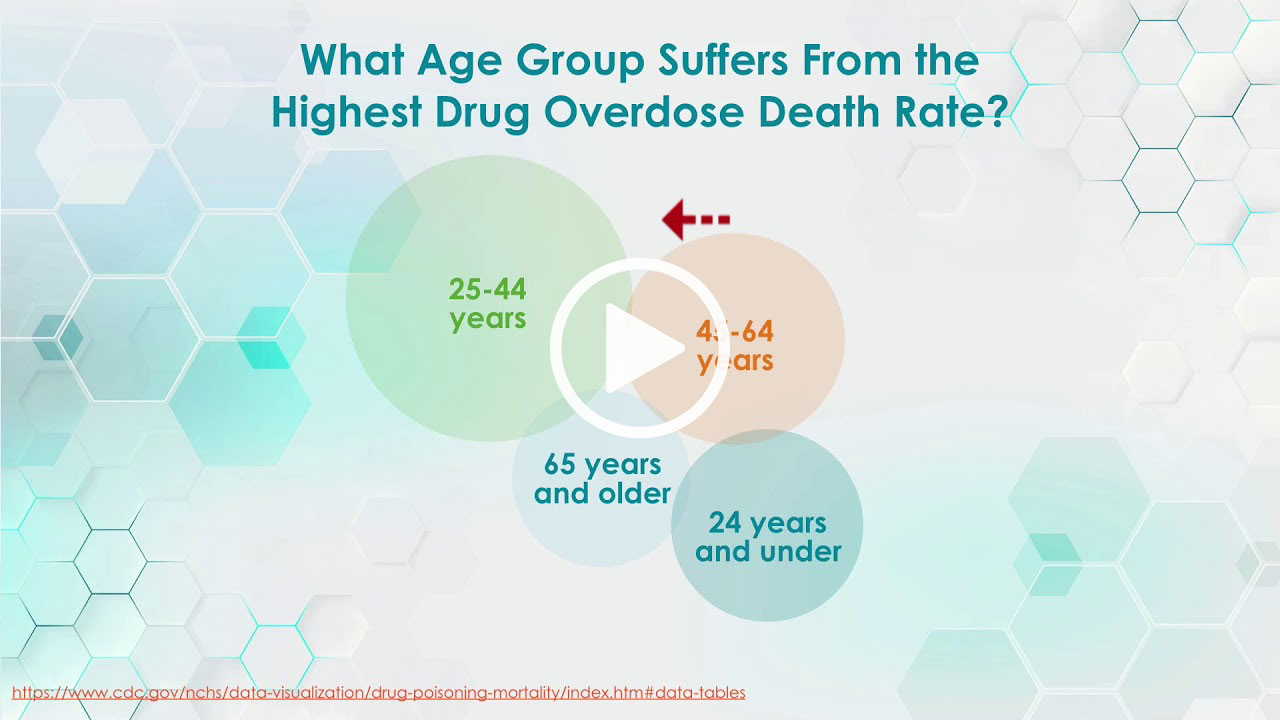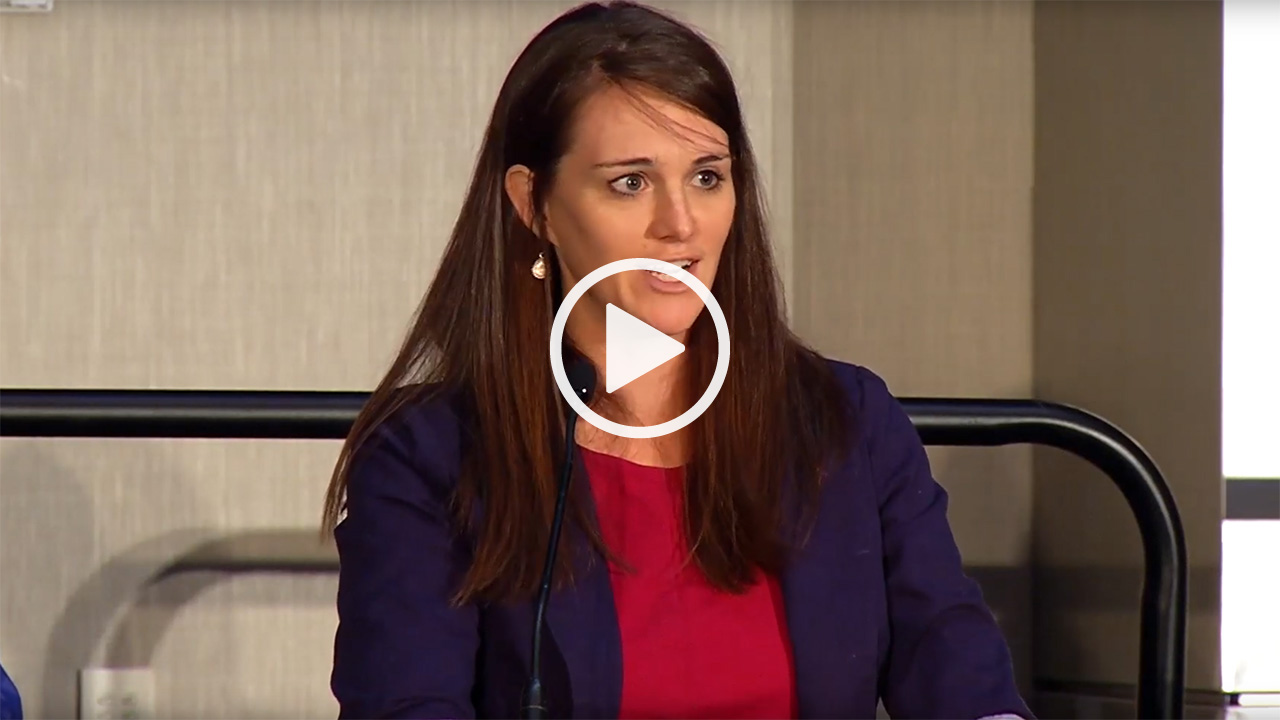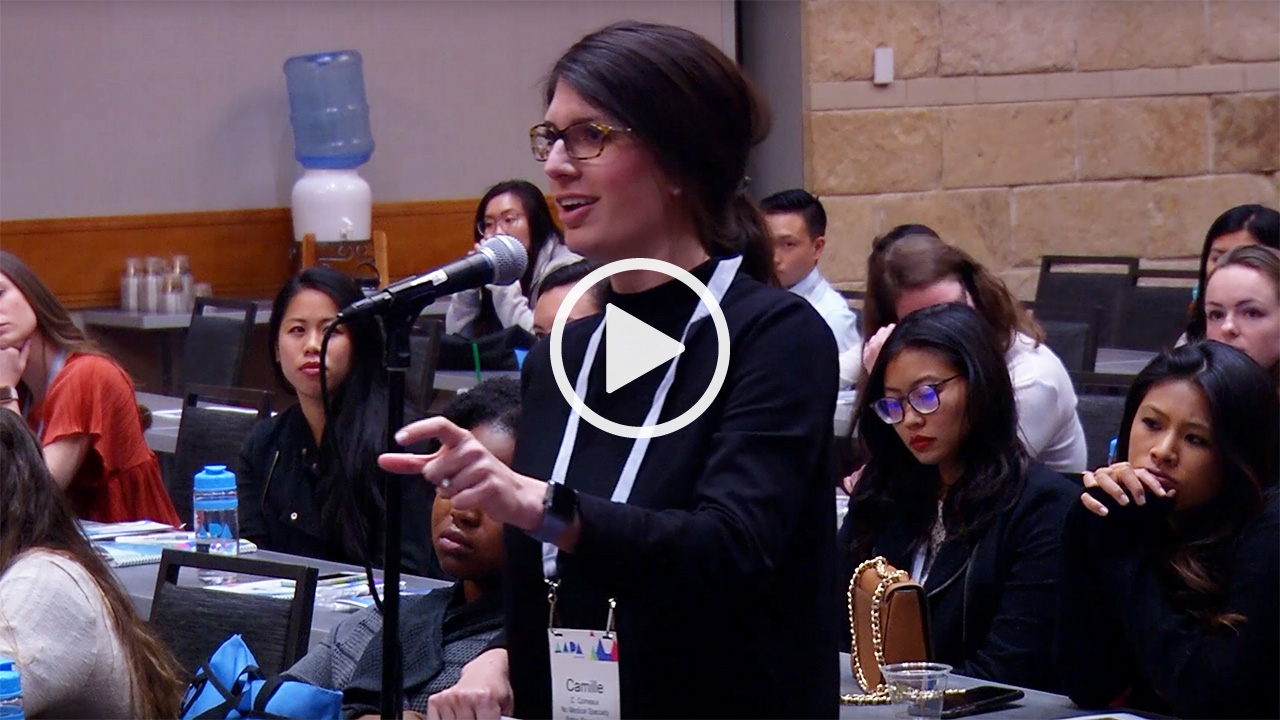PA Student SUD Guide
In the news, on the streets, and in the exam room, substance use disorder (SUD) is a public health crisis with an enormous cost. No matter what specialty you choose, you will be a witness to this epidemic afflicting communities across our country. Prepare yourself for treating patients with SUD using the free video resources below.
Here’s what you’ll learn:
- Background on the current SUD epidemic
- How PAs interact with SUD patients
- Barriers to treatment, such as stigma and fear
- How to build trust and rapport with patients
- What motivates patients to seek help
- Why it’s important for every PA to be prepared to treat patients with SUD
This curriculum also includes a comprehensive resource section for those wishing to pursue additional training or learn more about SUD prevention, treatment, and recovery.
Presentations
This guide includes five videos from sessions recorded at the PA Student SUD Symposium during AAPA 2019 in Denver. Test your comprehension with an optional quiz at the end of most videos. Inspired to learn more? Scroll down for additional resources on SUD prevention, treatment, and recovery.
Additional Resources
- Access links to training, continuing education, resources for patients, and more in the SUD Information and Resource Guide
- Read more profiles of PAs treating SUD patients in different practice settings.
- Visit the National Institute on Drug Abuse’s Clinical Trials Network Dissemination Initiative website for innovative and evidence-based tools to improve your practice.
- Learn more about the DEA X-waiver and how PAs can prescribe buprenorphine for patients with opioid use disorder.
- View FAQs about the new buprenorphine practice guidelines (updated September 2021).
Questions about this guide? Contact the PA Foundation.
The PA Foundation produced and is solely responsible for the content of this program. This project was funded in part with federal funds from the National Institute on Drug Abuse, National Institutes of Health, Department of Health and Human Services, under Contract No. HHSN271201700059C. The views expressed in these materials and by speakers and moderators do not necessarily reflect the official policies of the Department of Health and Human Services; nor does mention of trade names, commercial practices, or organizations imply endorsement by the U.S. government.
Video content was recorded at AAPA 2019 in Denver on May 18, 2019. Special thanks to the presenters and the coordinating team of the PA Foundation: Joanna Weston, MPH, project manager; Caroline Pierce, communications and program manager; Lynette Sappe-Watkins, CFRE, executive director.






